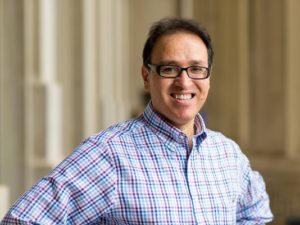U-M Arabic poetry translator wins 'genius' grant
By Katrease Stafford, Detroit Free Press Staff Writer
17 September 2014
The 2014 MacArthur Fellows — so-called genius grants — were announced Wednesday morning.
One University of Michigan professor is joining a rare class of creative individuals today: Khaled Mattawa is among 21 people from around the country named as 2014 MacArthur Foundation Fellows.
In the academic world, the award is known as the “genius grant.” A cartoonist, physicist, jazz composer and mathematician are among the other fellows.
Mattawa, a poet-translator of Arabic poetry, will receive a $625,000, no-strings-attached stipend paid out over the next five years. He said he plans to use the money to further his translations and take on larger projects.
He’s being recognized for the work he has done to broaden the public’s understanding of Arabic poetry. Mattawa was nominated anonymously for the award.
“It’s amazing news,” he said. “I was really surprised, delighted and stunned in a good way.”
Mattawa, 50, was born in Libya and moved to the U.S. in 1979. He said he developed a love for poetry during his last year at University of Tennessee. He initially planned on being a journalist, but a creative writing class led him to poetry.
“I hesitated a little bit, but I didn’t turn back from it,” he said. “Poetry, it allowed me the opportunity to explore things, explore ideas and shape memories.”
He said translating can be difficult at times because some words don’t have the same meaning in English.
“Translation is not in the immediacy, it’s in coming back and coming back again, questioning work and reading the poem and saying, ‘Ah, that stands on its own,’ ” Mattawa said.
Mattawa has translated nine books of contemporary Arabic poetry, including the work of some highly respected poets, such as Amjad Nasser of Jordan and Adonis of Syria. He’s working on his 10th book.
Mattawa is also the author of four collections of his own poetry, including “Tocqueville” and the book, “Mahmoud Darwish: The Poet’s Art and His Nation.”
“For me, there was a lot of poetry in American English to read, but it didn’t seem to have the scope of the Arab experience or issues in Arab life,” Mattawa said. “I began to translate poetry as a way of bringing that experience into American English to help me shape my own voice. It was a way for me to learn how to write modern poetry.”
Mattawa said his translations are not exact replications of the original poems, but are instead creative reproductions that still keep the author’s spirit in tact.
Contact Katrease Stafford: kstafford@freepress.com
